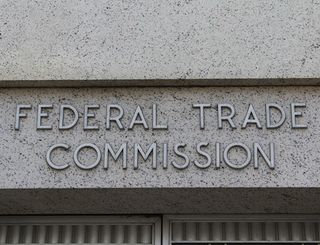Google to Pay $19 Million FTC Settlement

Google has agreed to pay at least $19 million to settle Federal Trade Commission allegations it unfairly billed parents for in-app purchases made by their kids.
The settlement also requires Google to change its mobile app billing practices to make sure that consent is obtained before any charges are billed.
The FTC alleged that Google had "unfairly billed consumers for millions of dollars in unauthorized charges incurred by children using mobile apps downloaded from the Google Play app store for use on Android mobile devices."
The FTC said that was a violation on the FTC Act's prohibition on unfair commercial practices. The FTC said some parents complained about hundreds of dollars in charges they had not authorized.
“For millions of American families, smartphones and tablets have become a part of their daily lives,” said FTC chairwoman Edith Ramirez. “As more Americans embrace mobile technology, it’s vital to remind companies that time-tested consumer protections still apply, including that consumers should not be charged for purchases they did not authorize.”
According to the FTC, starting in mid-to-late 2012, Google featured a pop-up box asking for an account holder’s password before billing in-app charges, but the pop-up didn't have any information on the charge. Google also did not inform consumers that putting in the password opened a 30-minute window in which kids could "rack up unlimited charges" without having to enter the password each time.
The FTC also said that in response to thousands of consumer complaints about the charges, some Google employees referred to the issue as “friendly fraud” and “family fraud” when referring to the complaints as a leading cause of refund requests, and that the company was referring complaints to the app developer.
Broadcasting & Cable Newsletter
The smarter way to stay on top of broadcasting and cable industry. Sign up below
"We've already made product changes to ensure people have the best Google Play experience possible,” said a Google spokesperson. “We're glad to put this matter behind us so we can focus on creating more ways for people to enjoy all the entertainment they love.”
The FTC vote on the settlement was 4-0-1, with commissioner Joshua Wright recused.
The FTC pointed out this is the third action this year related to kids in-app charges. Apple agreed to pay $32.5 million back in January over allegations it did not obtain consent for those charges, and in July the FTC filed a complaint in court against Amazon.com seeking refunds and an order requiring informed consent.
"We are pleased to see the FTC stepping up to stop web stores from charging parents for in-app purchases made by unsuspecting children, who did not understand what they were doing or have any legal right to charge another person’s account," said Hudson Kingston, legal director for the Center for Digital Democracy, which has been a leading voice for protecting kids online. "It is a sad truth that many millions of dollars were made by Google, Apple, and Amazon by this type of manipulation, and settlements like this one will help to make many parents whole."
“Virtual purchases have real-world impacts, and I commend the FTC for taking action to protect consumers and especially children from unintended in-app charges," said Sen. Ed Markey (D-Mass.). "Requiring informed, express consent prior to charging consumers means kids can’t drain their parents’ wallets because they don’t comprehend the consequences of an in-app purchase. I appreciate Google taking concrete actions to address this issue. As the use of mobile apps becomes ubiquitous in our digital economy, I encourage the Commission to continue to monitor these applications, especially those targeted to children.”
Markey asked the FTC in 2011 to investigate in-app purchases and industry practices. He has been another leading voice for protecting children online.
(Photo via John Taylor's Flickr. Image taken on Aug. 14, 2014 and used per Creative Commons 2.0 license. The photo was cropped to fit 3x4 aspect ratio.)
Contributing editor John Eggerton has been an editor and/or writer on media regulation, legislation and policy for over four decades, including covering the FCC, FTC, Congress, the major media trade associations, and the federal courts. In addition to Multichannel News and Broadcasting + Cable, his work has appeared in Radio World, TV Technology, TV Fax, This Week in Consumer Electronics, Variety and the Encyclopedia Britannica.

